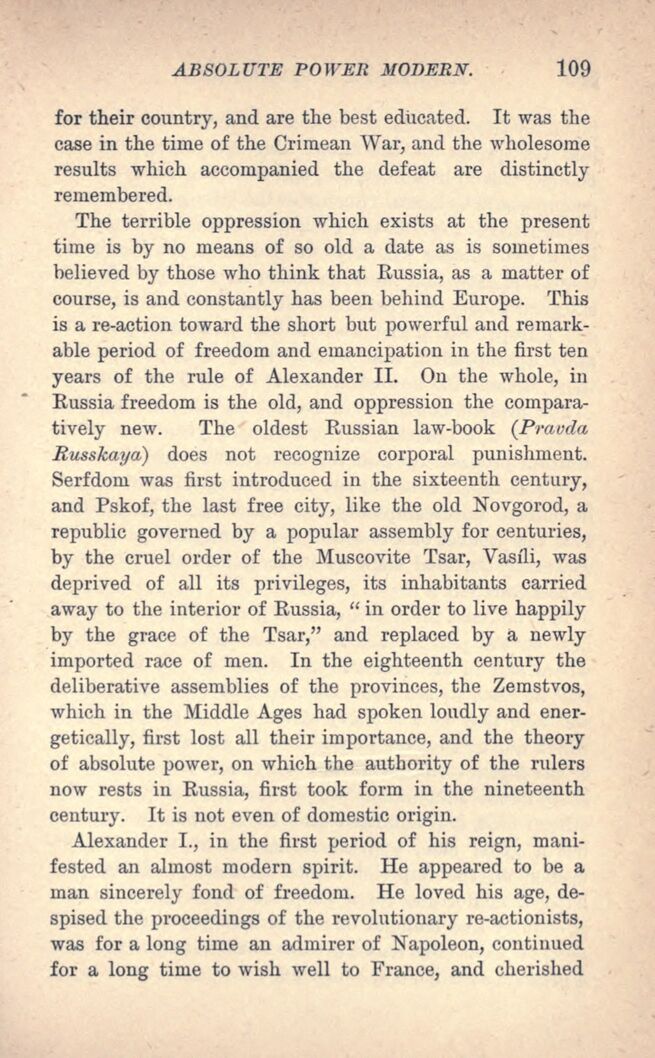
Full resolution (JPEG) - On this page / på denna sida - VII

<< prev. page << föreg. sida << >> nästa sida >> next page >>
Below is the raw OCR text
from the above scanned image.
Do you see an error? Proofread the page now!
Här nedan syns maskintolkade texten från faksimilbilden ovan.
Ser du något fel? Korrekturläs sidan nu!
This page has been proofread at least once.
(diff)
(history)
Denna sida har korrekturlästs minst en gång.
(skillnad)
(historik)
for their country, and are the best educated. It was the
case in the time of the Crimean War, and the wholesome
results which accompanied the defeat are distinctly
remembered.
The terrible oppression which exists at the present
time is by no means of so old a date as is sometimes
believed by those who think that Russia, as a matter of
course, is and constantly has been behind Europe. This
is a re-action toward the short but powerful and
remarkable period of freedom and emancipation in the first ten
years of the rule of Alexander II. On the whole, in
Russia freedom is the old, and oppression the
comparatively new. The oldest Russian law-book (Pravda
Russkaya) does not recognize corporal punishment.
Serfdom was first introduced in the sixteenth century,
and Pskof, the last free city, like the old Novgorod, a
republic governed by a popular assembly for centuries,
by the cruel order of the Muscovite Tsar, Vasíli, was
deprived of all its privileges, its inhabitants carried
away to the interior of Russia, “in order to live happily
by the grace of the Tsar,” and replaced by a newly
imported race of men. In the eighteenth century the
deliberative assemblies of the provinces, the Zemstvos,
which in the Middle Ages had spoken loudly and energetically,
first lost all their importance, and the theory
of absolute power, on which the authority of the rulers
now rests in Russia, first took form in the nineteenth
century. It is not even of domestic origin.
Alexander I., in the first period of his reign,
manifested an almost modern spirit. He appeared to be a
man sincerely fond of freedom. He loved his age,
despised the proceedings of the revolutionary re-actionists,
was for a long time an admirer of Napoleon, continued
for a long time to wish well to France, and cherished
<< prev. page << föreg. sida << >> nästa sida >> next page >>